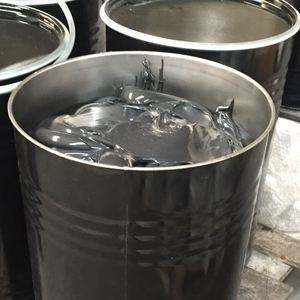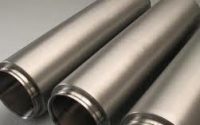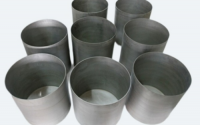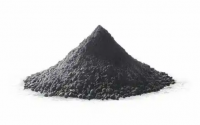What Are the Uses of Molybdenum Machining Products?
As is known to all, molybdenum is mainly consumed in the iron and steel industry, most of which are directly used for steelmaking or cast iron after pressing molybdenum oxide blocks, and a few are smelted into ferromolybdenum and molybdenum foil before being used for steelmaking. The content of molybdenum in low alloy steel is less than 1%, but this consumption accounts for about 50% of the total consumption of molybdenum.
Advantages of Molybdenum
Stainless steel with a molybdenum content of 4-5% is often used in places where corrosion is serious, such as marine equipment and chemical equipment.
As an alloying element of steel, molybdenum has the following advantages:
- Improve the strength and toughness of steel;
- Improve corrosion resistance of steel in acid-base solution and liquid metal;
- Improve the wear resistance of steel;
- Improve the hardenability, weldability, and heat resistance of steel.
Application of Molybdenum
The addition of molybdenum to stainless steel can improve the corrosion resistance of steel. Adding molybdenum to cast iron can improve the strength and wear resistance of iron. Adding molybdenum to alloy steel can improve elastic limit, and corrosion resistance and maintain permanent magnetism. Nickel-based superalloys containing 18% molybdenum have the characteristics of high melting point, low density, and low thermal expansion coefficient, and are used in the manufacture of various high-temperature components for aviation and aerospace. Molybdenum metal is widely used in electronic devices such as electron tubes, transistors, and rectifiers.
Application of Molybdenum Compounds
Molybdenum oxide and molybdate are excellent catalysts in the chemical and petroleum industries. Molybdenum disulfide is an important lubricant used in the aerospace and machinery industry sectors. In addition, due to its unique anti-sulfur properties, molybdenum disulfide can catalyze the hydrogenation of carbon monoxide to produce alcohols under certain conditions and is a promising C1 chemical catalyst.

Application of Pure Molybdenum
High-quality molybdenum raw materials with a purity of more than 99.95% can withstand high temperatures above 1600°-1700°. Pure molybdenum wire is used for high-temperature electric furnaces, EDM, and wire cutting; molybdenum foil is used to manufacture radio equipment and X-ray equipment; molybdenum processed parts can withstand high temperatures; Manufacture of wire supports; molybdenum bolts are used to fix molybdenum plate electrodes in glass fiber production.
Application of Molybdenum Based Alloy
Using molybdenum as the matrix, adding other elements (such as titanium, zirconium, hafnium, tungsten, rare earth elements, etc.) can form non-ferrous alloys. These alloying elements not only play a role in solid solution strengthening and maintaining low-temperature plasticity of molybdenum alloys but also form stable and dispersed carbide phases to improve the strength and recrystallization temperature of the alloys. Molybdenum-based alloys are used in high-heating elements, extrusion abrasives, glass-melting furnace electrodes, spray coatings, metal processing tools, and spacecraft parts because of their good strength, mechanical stability, and high ductility.
Application of Molybdenum Materials in Other Fields
The application of molybdenum in other alloy fields and the chemical industry is also expanding. For example, molybdenum disulfide lubricant is widely used in the lubrication of various types of machinery, and molybdenum metal is gradually used in nuclear power, new energy, and other fields. Due to the importance of molybdenum, various governments regard it as a strategic metal. Molybdenum was widely used in the manufacture of weapons and equipment in the early 20th century. Vanadium alloys are used in the manufacture of alloy components and parts for warships, rockets, and satellites. Molybdenum is also widely used as a substrate for different film surfaces in thin-film solar energy and other coating industries.
For more information, please visit https://www.samaterials.com/.



